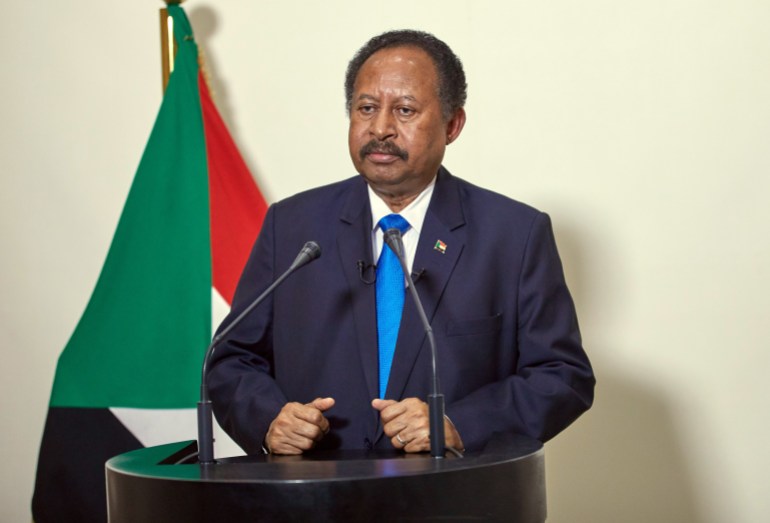Today, Saturday, a demonstration by supporters of the Forces of Freedom and Change - the National Charter Group took place in the Sudanese capital, to demand the dissolution of the government and the "restore of the revolution." The participants gathered in the vicinity of the Republican Palace this afternoon.
Al-Jazeera correspondent Al-Taher Al-Mardi said that the demonstrators gathered a few meters from the southern gate of the Republican Palace.
The demonstrators are calling for an expansion of the base of participation in the transitional government, the formation of a government of competencies, "restoring the revolution from its kidnappers" and completing the structures of the transitional period from the Constitutional Court, the Judicial Council and all the commissions contained in the Constitutional Document.
Earlier, the "National Charter Group" said that it had removed concrete barriers and obstacles placed by the security forces in the center of the capital, prior to these demonstrations.
The group accused the governor of Khartoum state, Ayman Nimer, of using government vehicles and state workers to close some areas, especially on the road leading to the Republican Palace and the Council of Ministers.
It also condemned, in a statement, the position of the governor of Khartoum and those with him from the political parties, which it described as "exploiting the apparatus of the authority in implementing its outlaw agenda that disrupts democracy and peaceful transition."
On the other hand, Nimr said that an armed group - he did not name - obstructed the work of the police and intelligence forces, and prevented them from continuing their work in setting up security barriers in that area.
The governor of Khartoum stressed that what the security services are doing is a normal procedure to protect the constitutional and sovereign sites, as he put it.
Opposition to dissolving the government
For its part, the Central Council of the Forces of Freedom and Change said - in a statement - that the current crisis in the country is behind limited military and civilian leaders who aim to abort the revolution by starving the people and bringing them to their knees, causing a security chaos, closing ports and closing roads, as he put it.
This council believed that behind the call for today's demonstrations were elements of the former regime, and said that the dissolution of the government is a decision owned by the forces of freedom and change, in consultation with the prime minister and the forces of the revolution, and it is not made by supreme decisions.
He described Prime Minister Abdullah Hamdok's speech as "biased to civil democratic transformation, and supportive of dismantling the isolated regime."
Yesterday, Hamdok presented a road map based on stopping the escalation and calling for dialogue, and said that the current crisis is the worst and most serious crisis threatening the democratic transition in the country.
Hamdok presented a road map to get out of the current crisis (Anatolia)
He believed that the failed coup attempt, which took place last month, fueled differences rather than being an opportunity to alert everyone to the dangers facing the country, as he put it.
The Prime Minister added that the current conflict in the country is not between civilians and the military, but between the camp of democratic transition and the camp of the coup against the revolution.
In a related context, the United Nations Mission to Support the Transition in Sudan said today that it is necessary to conduct a comprehensive dialogue to find a solution to the problems of the east of the country.
The UN mission added that eastern Sudan has been greatly marginalized, and it is important to achieve development.
Protesters in eastern Sudan are still blocking vital facilities from ports and roads, to demand the abolition of the "East route" included in the peace agreement, and the dissolution of the civilian government, provided that the country's military leaders take over the rule.

